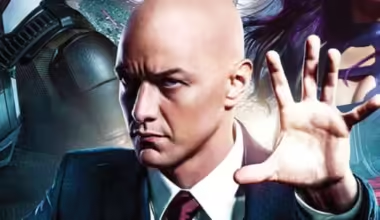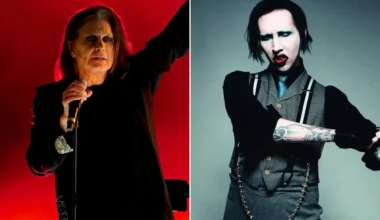Romance has been a staple of the superhero genre for decades, and the Marvel Cinematic Universe is no exception. Starting with Iron Man‘s Tony Stark and Pepper Potts, fans have been rooting for their favorite heroes to win over their love interests since the franchise first began. Most of its earliest romances have run their course, but with the MCU constantly expanding, there’s no shortage of new couples to cheer on. But despite how prevalent love is, the MCU isn’t exactly famous for its romance, and for good reason.
The MCU may have love stories to spare, but they usually don’t get the attention they need to truly thrive. As a result, many of the franchise’s romantic relationships feel rather underdeveloped and aren’t as emotionally impactful as they could be. That said, the MCU still has plenty of chances to improve, and the franchise can even look to another Marvel property for inspiration: Agents of S.H.I.E.L.D. The MCU spinoff may not be considered canon anymore, but fans still appreciate the series for its stellar writing, endearing characters, and moving romances.
The Marvel Cinematic Universe’s Romances Fall Into Tired Tropes
In Phase One, the MCU’s romances followed some familiar tropes in the superhero genre. While the early MCU love interests weren’t exactly damsels in distress, often being capable, intelligent women, they still weren’t given much room to grow beyond their relationships with the heroes. The main exception to this was Peggy Carter, who received her own solo series under Marvel Television and got to become a super soldier in another universe in What If…?. Even so, she, Betty Ross and Jane Foster were all separated from their superhero love interests by acts of noble sacrifice. Steve Rogers took down a plane of nukes and got frozen for almost 70 years, Bruce Banner left to get his Hulk transformations under control, and Thor stranded himself on Asgard to stop Loki’s plans. As heroes, their choices were understandable, but these sacrifices also stopped these burgeoning relationships dead in their tracks.
Tony and Pepper managed to make it through the first phase still together, but they fell prey to another unfortunate MCU pattern: drastic off-screen developments. Fans got to see Tony and Pepper get together and be a couple for two movies, only for them to break up, get back together, get married and have a kid during time-skips. Likewise, Jane and Thor’s relationship ended off-screen, and fans of Peter Quill and Gamora’s romance didn’t even get to see them officially get together before they were reintroduced as an established couple in Avengers: Infinity War. Others were left severely underdeveloped, like Clint and Laura Barton, Sharon Carter and Steve, and Natasha Romanoff and Bruce. Although movies have a limited amount of time to work with and might be affected by external factors like actor availability, relegating relationship milestones and other major events to the time between installments really robs them of their impact and makes them feel like an afterthought.
The few MCU romances that do get the spotlight and adequate time to develop still usually end in tragedy. Gamora was killed off shortly after fans found out she and Peter were together. Wanda Maximoff and Vision’s relationship didn’t get its chance to shine until WandaVision, and the series was mainly about Wanda learning to move on following his death. Peter Parker and Michelle “MJ” Jones-Watson took their time getting together, but Spider-Man: No Way Home ended with MJ forgetting him to preserve the multiverse. Eternals was billed as an epic romance, with Sersi and Ikaris’ relationship spanning millennia, but they still broke up off-screen, and Ikaris decided to fly into the sun after betraying her and the rest of their team. Even Thor: Love and Thunder, which reignited the sparks between Thor and Jane, ended with Jane’s death. These heartbreaking endings might seem like good dramatic choices, but it doesn’t leave the MCU with many long-term couples for viewers to invest in. It also sends the message that romance is only interesting when it ends in tears, which simply isn’t true.







